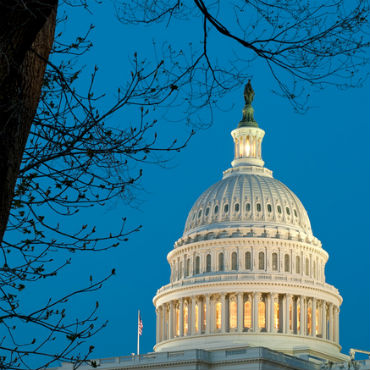Senate kicks CR back to House
Sen. Chuck Schumer: 'We will not be extorted' by House Republicnas trying to tie funding for the government to a delay of the health care reform law.

The Senate voted along party lines Sept. 30, the last day of fiscal 2013, to return a stopgap spending bill to the House of Representatives, absent provisions that would delay implementation of the 2010 health care law and repeal a tax on medical devices.
The Senate vote sets up a replay of the situation facing the House over the weekend, with hours remaining before the government's authority to spend money on certain discretionary programs and setting the stage for a partial government shutdown on Oct. 1.
After the 54-46 vote to reject the changes made to the continuing resolution in the House, Senate Democrats indicated they didn't plan to negotiate alterations to the health care law as part of a CR or as a condition of extending the debt ceiling, which the Treasury Department says will be reached in about two weeks.
"We won't be extorted now. We won't be extorted two weeks from now. We won't be extorted in December," said Sen. Chuck Schumer (D-N.Y.) in a press conference after the vote.
Senate Minority Leader Mitch McConnell (R-Ky.) was reportedly trying to drum up support for a one-week CR to keep the government going during continued negotiations. Democratic leaders said that proposal was a non-starter. However, the House and Senate agreed on a bill to pay active duty members of the military in the event of a government shutdown. The legislation keeps paychecks coming for members of the armed forces including the Coast Guard (which is part of the Department of Homeland Security) if Congress fails to pass a stopgap funding measure. In the absence of such legislation, active duty military personnel would be required to wait until the funding issue is settled before receiving back pay.
President Barack Obama told reporters he was "not at all resigned" to a government shutdown, but he was making no efforts to strike a deal in the final hours of the fiscal year, insisting that Republicans acquiesce in his demand for a "clean" CR.
House Republicans don't appear to be caving into that demand. Instead, they began crafting more changes to the CR, including a one-year delay of the individual mandate portion of the health care law, effectively eliminating the prospect of fines for people who choose not to get health coverage. The new House plan also includes a measure to end health care premium support for political appointees in the executive branch and Members of Congress and their staffs. If that measure can garner the support of a majority of House Republicans in a vote before midnight on Sept. 30, the legislative ball would be back in the Senate's court as the clock ticked down to a partial government shutdown.
House Democrats said they would be willing to back a CR at sequestration budget levels. Previously they had been seeking a higher top-line number. But House Speaker John Boehner (R-Ohio) is unlikely, at least for the moment, to bring such a bill to the floor.
If a partial government shutdown is triggered by the failure to enact a spending bill, federal employees will be required to show up for work for a few hours on Tuesday to put shutdown procedures in place, return equipment, set new outgoing email and telephone messages, and attend to other administrative details. This puts the effective time of a government shutdown at about noon Oct. 1, giving Congress a little extra time to settle the issue before an estimated 800,000 employees go off the clock.






